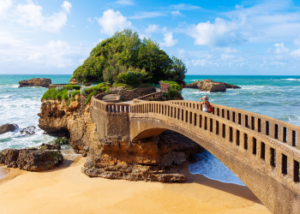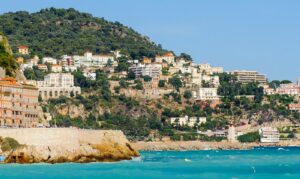France
Overview of the France
France, located in Western Europe, is bordered by the Atlantic Ocean and the Mediterranean Sea. The country boasts a rich cultural heritage and diverse climatic conditions ranging from oceanic in the northwest to Mediterranean in the southeast. France has a well-developed healthcare system and an extensive transportation network including high-speed trains, airports, and metro systems, facilitating easy travel within and outside the country.

In terms of infrastructure, France is globally recognized for its advanced facilities and strong economic framework. The nation ranks high in global competitiveness and innovation indices. It is also considered safe for immigrants, offering numerous opportunities for work, education, and integration into society. These attributes make France an attractive destination for people seeking new prospects and a high quality of life.
Percentage Distribution of Non-Immigrant Visa Holders in France (2014-2023 In Percentage)
Percentage Distribution of Non-Immigrant Student Visa Holders in France (2014-2023 In Percentage)
VISAS
Climate and Seasons

SPRING
March to May
Temperature 6°C to 17°C.

SUMMER
June to August
Temperature 15°C to 25°C

AUTUMN
September to November
Temperature 10°C to 20°C

WINTER
December to February
Temperature 1°C to 8°C
WHY STUDY IN France?
Studying in France offers a unique blend of world-class education, rich cultural experiences, and a globally recognized academic environment. Home to prestigious universities and grandes écoles, France excels in providing top-notch education in fields like business, engineering, fashion, and the arts. With affordable tuition fees compared to other Western countries, especially for programs taught in French, the country provides a cost-effective option for higher education.France’s strong emphasis on research and development ensures that students have access to cutting-edge resources and opportunities for hands-on experience through internships with leading multinational corporations. The nation’s historic cities, diverse landscapes, and vibrant cultural life enrich the student experience, offering an unparalleled opportunity to learn a new language and immerse oneself in a dynamic international environment.France’s strategic location in Europe makes it an ideal base for students wishing to explore other European countries, enhancing their global perspective and boosting their career prospects in the international job market.
COURSES
Computer Science
Business Analytics
MBA
Mechanical Engineering
Major Courses Opted by Students (2014-2023)

Test Preparation at PVR Global Educational Services
PVR Global Educational Services offers tailored training for GRE, IELTS, PTE, SAT, GMAT, and Duolingo tests. Expert instructors provide personalized study plans, practice materials, and mock exams to boost proficiency in reading, writing, listening, speaking, and quantitative skills. Flexible scheduling and comprehensive support help students achieve high scores and succeed in their academic and professional endeavors.
Quick Facts about France
Wide range of courses including globally acclaimed programs in business, fashion, and culinary arts.
Lower tuition costs compared to many Western countries, even for international students.
Programs offered in both French and English, catering to diverse international students.
Study amidst centuries-old architecture, world-class museums, and vibrant cultural scenes.
Central location in Europe provides easy travel to numerous other countries.
Strong emphasis on research with well-funded programs available across various disciplines.
Students can avail of post-study work options, encouraging career growth within France and Europe.
Courses Opted by International Students in France (2014-2023 In Percentage)
Education System in France
Mandatory education from age 3 to 16, focusing on fundamental academic and social skills.
Grade System: Typically graded A-F.
Duration: 13 years (Preschool to High School).
Average Fee: Mostly free in public schools; private schools vary.
Includes universities and specialized institutions (grandes écoles and technical institutes).
Grade System: 0-20 scale, with 10 as passing grade.
Duration: Varies by program and institution.
Average Fee: Approximately €170-€600 per year for public institutions.
Provides foundational subject knowledge, preparing for advanced study or professional entry.
Grade System: 0-20 scale, consistent with tertiary education.
Duration: 3 years.
Average Fee: €170 per year at public universities.
Advanced study with options for coursework, research, or professional practice.
Grade System: 0-20 scale, assessment through exams and thesis.
Duration: 2 years.
Average Fee: €243 per year at public universities.
Highest level of academic degree, focusing on original research.
Grade System: Pass or fail, based on dissertation and defense.
Duration: Typically 3-4 years.
Average Fee: €380 per year at public universities.

Identifying the Right Institution
Review rankings and faculty qualifications. Esteemed faculty often indicates a university's commitment to high academic standards.
Consider universities with strong funding and support for research, particularly in your field of interest.
Check global and national university rankings that evaluate factors like teaching, research, and international outlook.
Ensure the university offers a well-regarded program in your area of study with modern curricula.
Look at the achievements of alumni to gauge the potential career impact and networking opportunities.
Assess the quality of libraries, laboratories, and technology provided to support student education and research.
Universities with global connections provide opportunities for exchanges, internships, and collaboration on international projects.
No of Students placed in different sectors (2014-2023 In Percentage)
Success Rate of Indian Students in the France by Sector (2014-2023 In Percentage)
Getting a France Visa
Decide based on your travel purpose: tourism, study, work, or family visit. Each category has specific conditions and requirements.
Visit the official French visa website or consult the French embassy in your country to understand the eligibility criteria and required documents.
Collect documents like passport, photos, travel itinerary, proof of accommodation, financial means, and a letter of invitation or enrollment from a French institution.
Register an account on France-Visas, the official portal for visa applications to France, to fill out and track your application.
Fill out the application form accurately. Ensure all information is complete and corresponds with the documentation you will submit.
Fees vary depending on visa type and duration. Payment is usually made online during the application process.
First-time applicants must visit a visa application center to provide biometric data like fingerprints and a photograph.
Some visa types may require an interview at the consulate or visa application center. Prepare to discuss your travel plans and background.
Processing time varies by visa type and individual circumstances. Check typical processing times online and plan your application accordingly.
Once approved, you’ll either receive your passport with the visa via mail or you can pick it up from the application center.
Apply well in advance of your travel date to accommodate any delays. Check your visa details thoroughly upon receipt to ensure all information is correct.
List of Universities

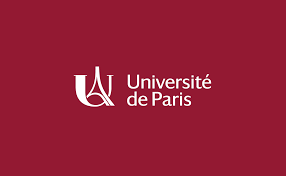
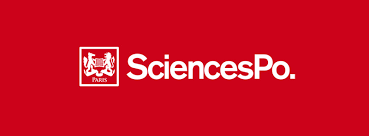
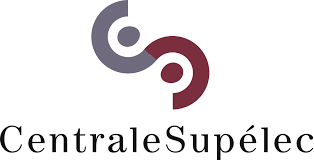
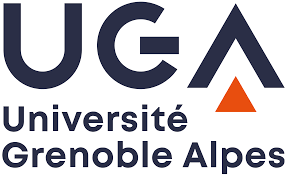
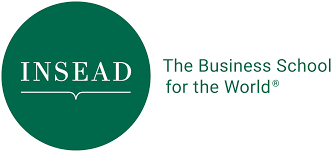
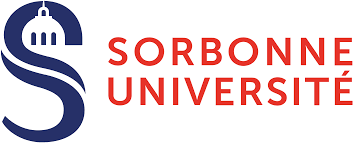

































Intake details
Intake | Start Dates | Remarks |
|---|---|---|
Fall | Late September | Main intake, offers the widest range of courses. Enrollment begins early in the year. |
Spring | Early January | Limited courses available, ideal for students missing the Fall intake. |
Summer | May/June | Mostly short courses or language programs, less common for regular degrees. |
Deadlines
Deadline Type | Fall Intake | Spring Intake |
|---|---|---|
Scholarship Deadlines | May to June | October to November |
Admission Deadlines | June to July | November to December |
Best Time to Start the Process | January to February | August to September |
Last Date to Apply for Admission | July to August | December to January |
Documents required
Document Type | Requirements | Remarks |
|---|---|---|
Passport | Valid passport with at least 6 months remaining after arrival | Essential for international travel and visa application. |
Academic Transcripts | Official transcripts from all prior institutions attended | Must be translated into French if not originally in French or English. |
Proof of Language Proficiency | Required scores in tests like DELF/DALF (French) or TOEFL/IELTS (English) | Depending on the course’s language of instruction. |
Motivation Letter | Detailed explanation of educational goals and why you choose the specific university | Typically 500-1000 words. Personalize for each application. |
Letters of Recommendation | Usually two from academic or professional references | Should be recent, relevant, and well-detailed. |
Resume/Curriculum Vitae | Comprehensive list of education, skills, experience, and achievements | Keep updated and tailored to the field of study. |
Proof of Financial Resources | Evidence of sufficient funds to cover tuition and living expenses | Bank statements, scholarship letters, or guarantor's documents. |
Health Insurance | Completed application form for each university | Double-check for errors and completeness before submission. |


